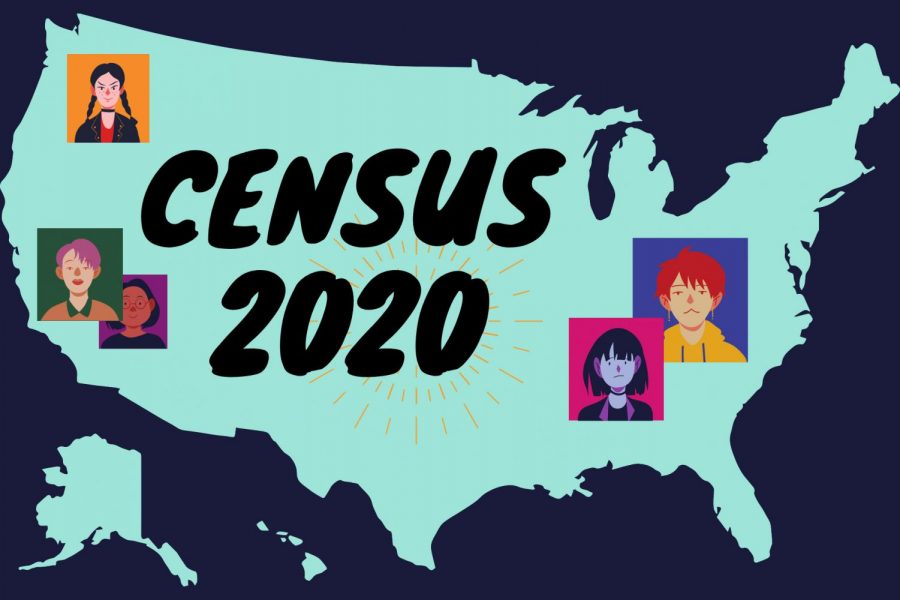Every 10 years since 1790, people residing in the U.S. have participated in the census. In order to understand its importance, one must understand the importance of representation in Congress.
In Article 1, Section 2, the Constitution states, “Representatives and direct Taxes shall be apportioned among the several States … according to their respective numbers, which shall be determined by adding to the whole number of free Persons.”
There are currently 36 representatives in the Texas House of Representatives for its population of approximately 29 million. This makes it the second state with the largest number of representatives, following California with 53.
Although Article 1, Section 2 states that the House could be as large as one representative for every 30,000 persons, there is currently one voting member for every 747,000 Americans. This is because the number of seats was capped by law at 435 members in 1929. However, that does not mean that Texas gets to keep 36 representatives forever.
Every 10 years, as the census is conducted, the 435 memberships are reapportioned among the 50 states. Therefore, if not all Texans are counted in the census, representatives could be lost.
Representatives can introduce bills and resolutions, offer amendments and serve on committees that will reflect the interests and priorities of those who they represent. It is thanks to their representation that the needs of our state can be addressed at the federal level. Having a fair representation in Congress is up to citizens and residents participating in the upcoming 2020 census.
According to the Pew Research Center, 84% of U.S. adults will either definitely or probably participate in the 2020 census. Of the 16% who are unsure about participating, 9% are within the ages of 18-29. The Center also reports that 7% of those who will not participate are Hispanic.
Last year, the Trump administration proposed adding a citizenship question to the 2020 census claiming it needed the information to enforce the Voting Rights Act, which outlaws discriminatory voting practices. The last time the census questioned citizenship for all U.S. households was in 1950.
It was in July of last year that the Supreme Court blocked the administration’s attempt to add the question. In a 5-4 decision, the Court ruled that the reasoning for adding the question “(seemed) to have been contrived.”
A citizenship question will not be asked in the 2020 census. An informational bilingual copy of the questionnaire that will arrive to American households beginning March 12 is already available to view here.
According to the census website, they are “bound by Title 13 of the U.S. Code to keep your information confidential.”
Even if the 2020 census had included the citizenship question, by law they are prohibited to share that, or any other information provided to them, with any other government agency or even law enforcement.
“Striking this question will remove a major barrier to allowing a full count of all people residing in the United States and prevent the use of the census as a political weapon to harm the representation and funding interests of affected communities,” said the American Civil Liberties Union in a statement.
At UTEP, the push for people’s participation within the community has already started. The Complete Count Committee’s collaborative create-a-thon “UTEP Creatives for the Count” was an evening that used digital media by way of the creation of memes to combat the stigma surrounding the 2020 census count to benefit both the community and the nation.
Leading the creative groups that were tasked at producing original digital media content that would serve to destigmatize the census was Paulina Lopez. Judges included UTEP alumni. Student Government Association’s Vice President of External Affairs Isaac Varela opened by attributing the raising of census awareness to there being “nothing more important than being counted as a person.”
“The value of an accurate count helps amplify our community’s voice on a national level and demonstrates how funds trickle down based on data, healthcare (and more),” Lopez said. She reinforced the idea that when people go uncounted, the community is impacted for the next ten years.
This is the first year people can respond to the census online, and Lopez says this may serve to dispel myths about the census and dissipate the fear associated with it by showcasing how safe this form of civic participation is.
Participants used generators to create memes, initiating what Lopez called the ideation process, which identified which messages coupled with their pictorial counterparts would resonate with audiences and their consumption of media on various platforms.
“One of the memes I’m using is the math lady,” said student Andrea Vea.
She also chose to employ popular meme templates such as “distracted boyfriend” and “change my mind.”
Throughout the duration of the activity, groups were encouraged to empathize with a variety of circumstances, personas and analytics to create graphic designs that would appeal to various demographics and audiences and encourage people to “rock the vote.”
The winning meme of the evening was created on the “Trump bill signing” meme template where President Trump is featured holding up an executive order he signed, with the message that the census is not partisan. The template and message correlated in such a way that highlighted some of the assumed concerns regarding the census such as the thought of it being something of a trap for undocumented immigrants, addressing the fear of deportation. The goal is to break down these barriers and begin to estimate the census as a pragmatic approach to inclusion.
Census Day will be observed nationwide on April 1. By this date, participants will have received detailed information on how to respond to the 2020 census online, by phone or mail.
For more information on the 2020 census, visit 2020census.gov.
Marisol Chávez and Sasha Minjarez may be reached at [email protected]











